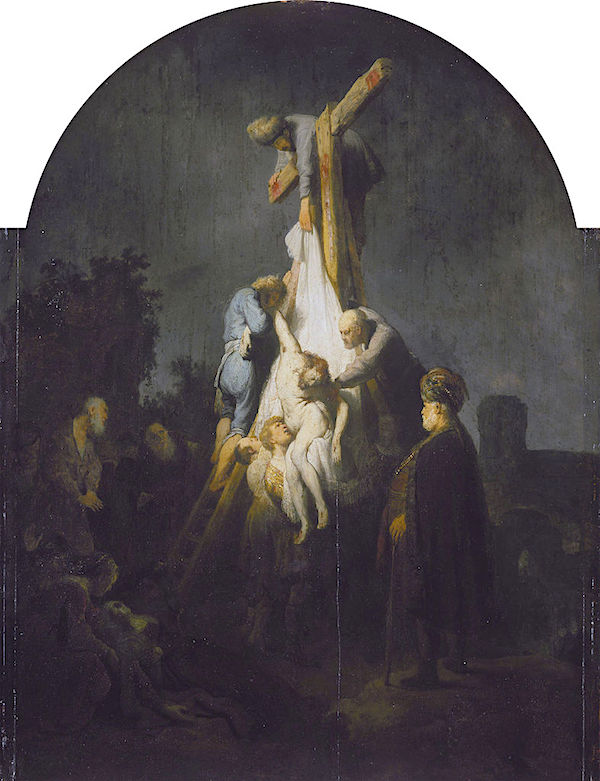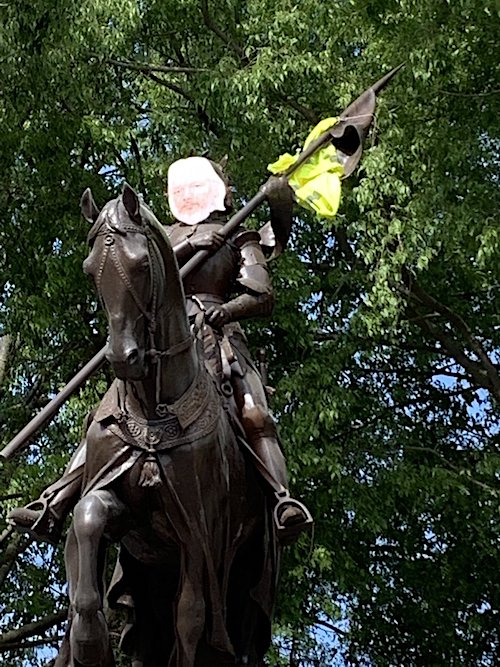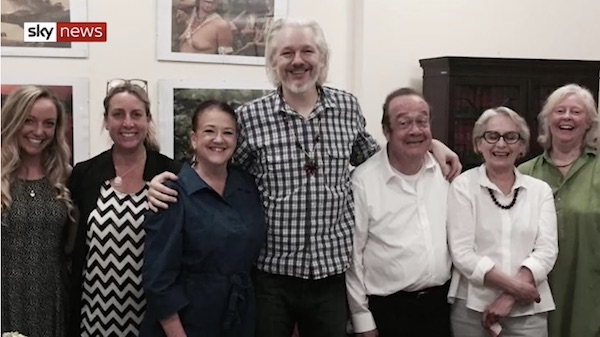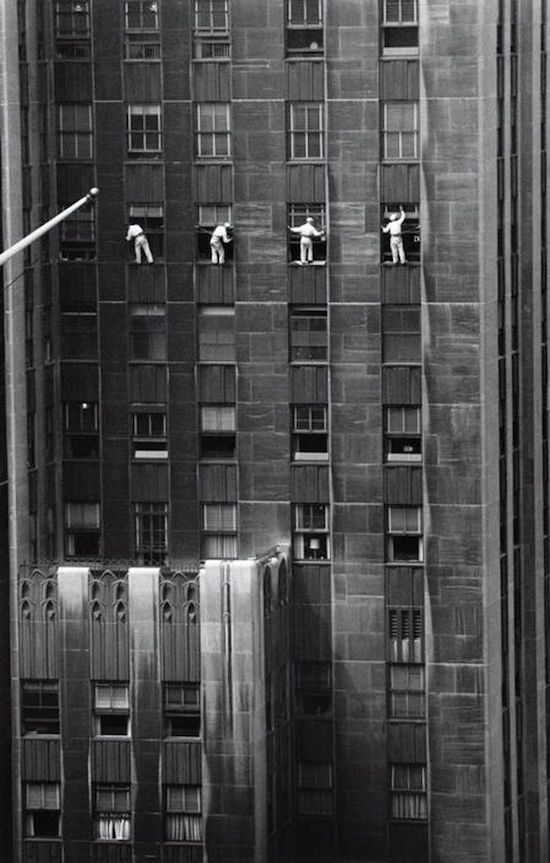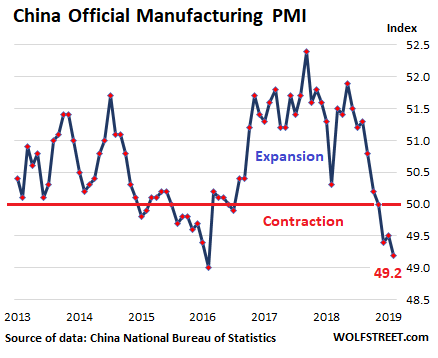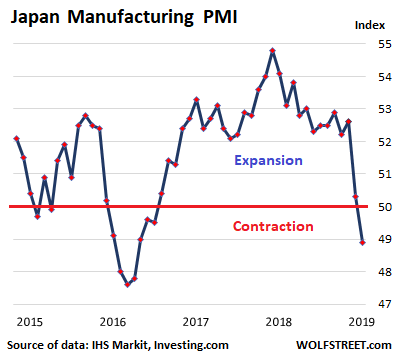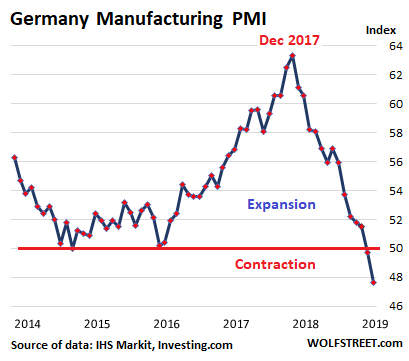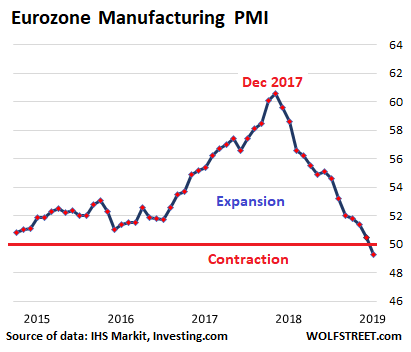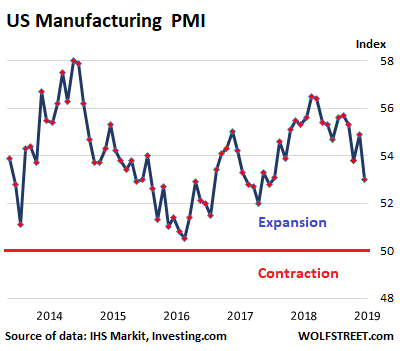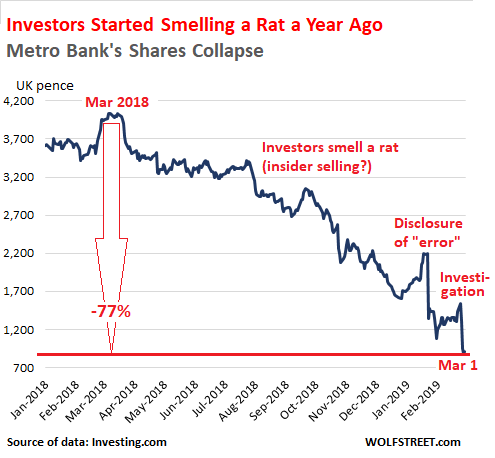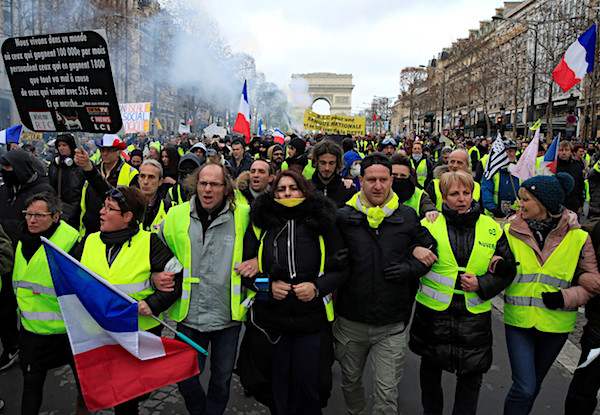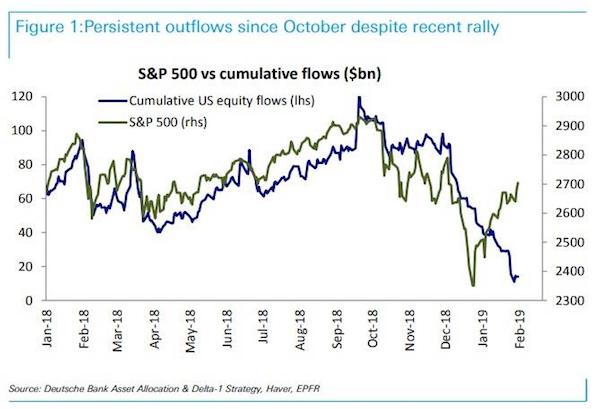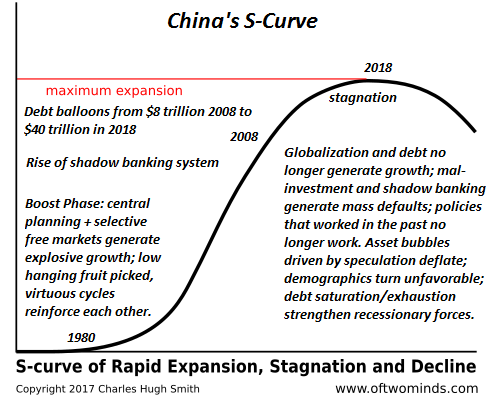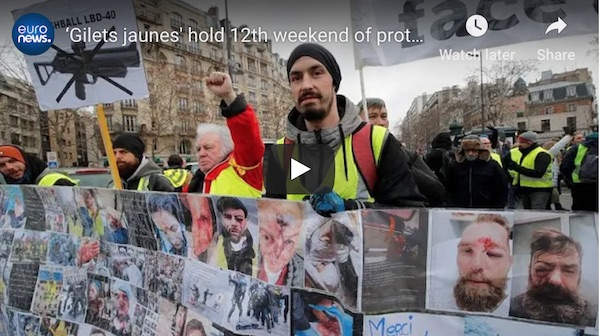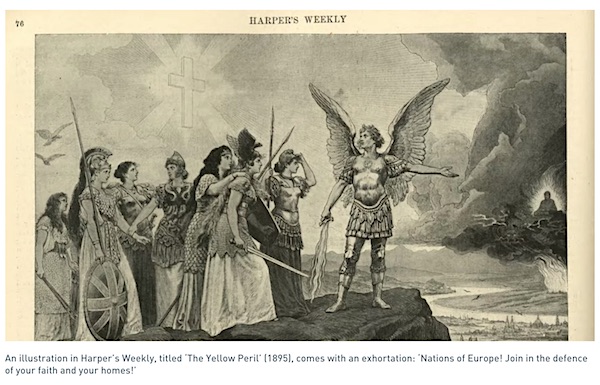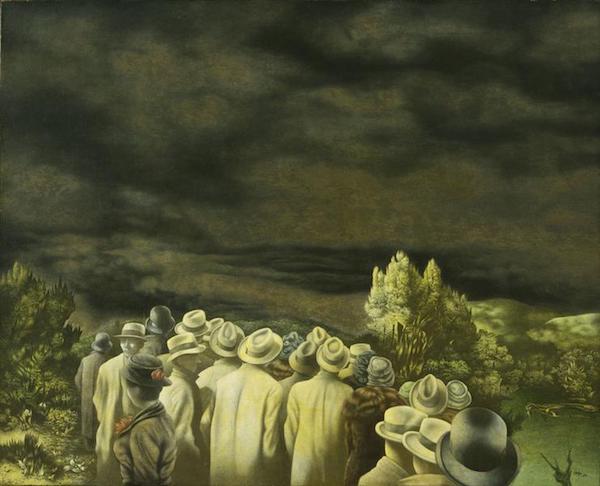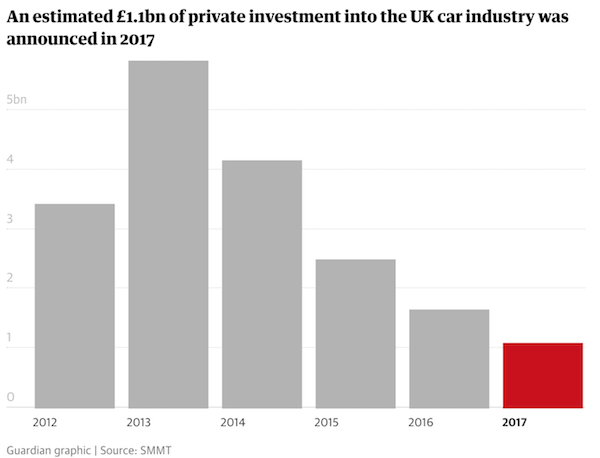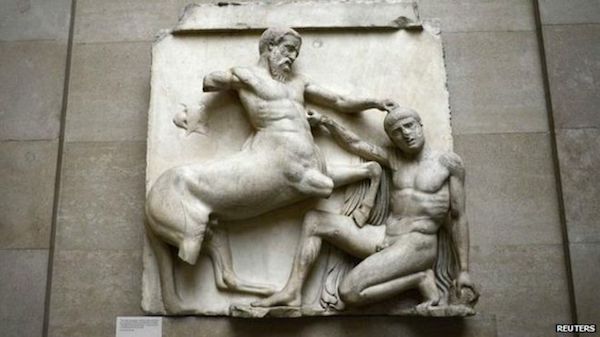
Pablo Picasso Chair 1942

The smell that emanates from this is something in the vein of : “How dare a president be involved in foreign policy?” Sure, Sondland is an out of place character, but to label this ‘interference’ is odd. “At the NSC, “we have a way we do things that works,” talking about regular vs irregular foreign policy channels. But the thing is that Trump didn’t trust the regular channels; he thought they’d protect Biden, and keep the focus on Russia Russia.
Is Trump dangerous for asking for a Burisma investigation? Or is he merely a problem for the State Lifers and their backers? Want to check what the Constituion says about foreign policy?
• Ex-NSC Official Claims Sondland Said He Was Directed By Trump On Ukraine (CNN)
Gordon Sondland, the American envoy to the European Union, was acting at President Donald Trump’s instruction in his dealings with Ukraine, and Sondland said that the President told him Ukrainian President Volodymyr Zelensky “must announce the opening of the investigations,” according to the closed-door deposition of a former National Security Council official. Former NSC official Tim Morrison testified that he had heard from Sondland that US aid to Ukraine was conditioned on the country announcing an investigation into former Vice President Joe Biden and his son Hunter Biden.
Morrison’s testimony, which was released by House impeachment investigators on Saturday, adds additional corroboration to the testimony of others, like US diplomat Bill Taylor, that Sondland said he was acting at Trump’s direction when he was urging Ukraine to announce political investigations. Morrison’s testimony will only fuel questions about Sondland’s closed-door interview, which has been called into question based on the testimony others have given about his conversations with Trump. Sondland is scheduled to testify publicly before the House Intelligence Committee on Wednesday. House impeachment investigators also released Saturday the transcript of Jennifer Williams, an aide to Vice President Mike Pence, who listened into the July 25 call along with Morrison.
While Morrison did not take specific issue with the content of Trump’s call with Zelensky, both aides described their concerns as they listened to Trump discussing political investigations. Morrison’s testimony also added additional detail explaining how the call ended up on a highly secure server outside of normal channels. Morrison, who is scheduled to testify publicly on Tuesday, described how Sondland was a “problem” as he operated in what previous witness testimony described as irregular foreign policy channels. And he recalled Sondland speaking directly to Trump about the investigations and the military aid. “He related to me he was acting – he was discussing these matters with the President,” Morrison said.
[..] Morrison said Sondland was a concern for his predecessor, former White House Russia expert Fiona Hill, who is also scheduled to testify publicly next week. “She described Ambassador Sondland as a problem,” Morrison said, recounting a conversation they had about Sondland. “We both discussed that Ukraine was not in the EU, which led to the follow-on question of, why is he involved in Ukraine? And, as I mentioned, she mentioned Burisma, which I nearly did not know what that was.” Morrison explained their concern: “It was less about his role in Ukraine and more about how he conducted himself. He did not participate in the process. So we are very process-oriented on the NSC; we have a way we do things that works. And so when people come in and get involved in issues and they’re not of that process, it creates risk.”

He can’t for the life of him remember meeting Virginia Giuffre, but he distinctly remembers going for pizza.
• Prince Andrew Denies Sex With 17 Year Old, Says He Was At Pizza Express (Ind.)
Prince Andrew has claimed he could not have had sex with a 17-year-old girl on the night he is accused of doing so – because he had taken his daughter to Pizza Express in Woking. Giving an unprecedented television interview to address claims surrounding his friendship with billionaire sex offender Jeffery Epstein, the Duke of York denied having sex with Virginia Giuffre in 2001. [..] “On that particular day, that we now understand is the date which is the 10th of March, I was at home,” the duke said. “I was with the children and I’d taken Beatrice to a Pizza Express in Woking for a party at I suppose, sort of, four or five in the afternoon.
“And then because the duchess [of York] was away, we have a simple rule in the family that when one is away, the other one is there.” When asked why he remembered the specific trip to the restaurant, he replied: “Because going to Pizza Express in Woking is an unusual thing for me to do, a very unusual thing for me to do. “I’ve never been … I’ve only been to Woking a couple of times and I remember it weirdly distinctly. “As soon as somebody reminded me of it, I went: ‘Oh yes, I remember that’.”
[..] The duke went on to question the validity of a photograph with his arm around Ms Giuffre in London – saying it was not possible to prove if the image had, or had not, been faked. He said: ”I don’t believe it’s a picture of me in London because when I would out to… When I go out in London, I wear a suit and a tie. “That’s what I would describe as… those are my travelling clothes if I’m going to go… If I’m going overseas.” He added: ”Nobody can prove whether or not that photograph has been doctored but I don’t recollect that photograph ever being taken.”


What a trainwreck of a man. Saw Epstein umpteen times, a man who everybody says was always surrounded by minor girls, but not during all those times Andrew was around, in London, New York, pedo island.
• High-Stakes Gamble On TV Interview Over Epstein Backfires On Prince Andrew (G.)
The prince’s answers are likely to ensure he remains in the headlines for the conceivable future, and several commentators have condemned his approach. Catherine Mayer, founder of the Women’s Equality Party, tweeted that the prince was “too stupid to even pretend concern for Epstein’s victims”. Charlie Proctor, editor of the Royal Central website, said: “I expected a train wreck. That was a plane crashing into an oil tanker, causing a tsunami, triggering a nuclear explosion level bad.” It is known that some close to the prince had reservations about how the interview – reportedly the result of six months of negotiations with the royal household – would play out.
Jason Stein, who previously worked for the former work and pensions secretary Amber Rudd, recently quit as an adviser to the prince after less than a month. It is understood he had disagreed with the decision to go ahead with the interview. It is claimed that the prince sought permission from the Queen before giving it, and that she gave her consent early last week. In the interview, the prince said that with “hindsight” his decision to stay at Epstein’s house was “definitely the wrong thing to do”. Giuffre’s lawyers did not respond to requests for comment but her Twitter account retweeted a comment from the former editor of the Northern Echo, Peter Barron, who said: “Astonishing decision by the royal family to go ahead with this Prince Andrew confessional interview in the hope it would draw a line under the scandal. It will have the opposite effect.”
[..] Giuffre’s lawyer, Jack Scarola, told Mail Online the prince should agree to an interview “under oath” instead of giving statements to the media that carry “little weight”. He said: “I believe there is an ongoing investigation in New York by the FBI under the supervision of the US Attorney’s office into those involved in facilitating Jeffrey Epstein’s abuse. “I would love to see Prince Andrew submit to an interview under oath with the investigating authorities. Talking to the media doesn’t quite cut it. Statements that are not under oath carry little weight.”
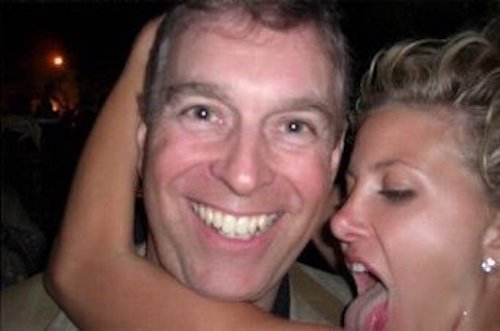
Prince Andrew: I don’t do public displays of affection

Getting antsy: “Asking the FAA to let Boeing deliver newly-manufactured 737 MAXes to clients before it is approved to fly..” Wait, how are you going to deliver them then?
• Boeing Pressures FAA To Re-Approve 737 MAX, Staff Beg Not To Fly In It (BI)
Boeing is exerting pressure on the Federal Aviation Administration to speed up the approval of its 737 Max jet to fly again, according to multiple reports, and seemingly confirmed by the agency’s head. At the same time, airline crew and pilots are pushing back against any expedited timescale for the Max’s return, with some begging not to be assigned to the jets even after they return to service. The Max has been grounded for eight months, since the second of two fatal crashes which killed more than 300 people between them. The approval process centers on proposed fixes to an automated flight control system which malfunctioned in the two crashes. It has taken far longer than many in the aviation industry expected.
According to The New York Times and the Reuters news agency, Boeing has pushed the FAA on two fronts in the hope of getting the plane back in the air faster: • Pushing for pilots to test the new software on flight simulators before the FAA has finished vetting it. • Asking the FAA to let Boeing deliver newly-manufactured 737 Maxes to clients before it is approved to fly, to shorten the lag between approval and airlines putting passengers on it. The FAA has resisted, The Times reported. It said engineers pointed out that it does not make sense to ask pilots to test software before it is fully vetted, since it could be changed during that process. Senior figures at the FAA have encouraged staff to take all the time they need to keep assessing the plane, both in public and in private.
Lori Bassani, the head of Association of Professional Flight Attendants, a union representing staff at American, said: “I hear from flight attendants every day, and they’re begging me not to make them go back up in that plane.” She said Boeing needs to share more information with her members about their safety changes before they will be happy to get back on. Her words followed a harsh rebuke from Jon Weaks, the head of the Southwest Airlines Pilots Association, who said Boeing was demonstrating “arrogance, ignorance, and greed” in its push to get the plane flying again.

“Russia, he said, is part of Europe and it cannot and should not be ignored..”
• Macron Plays Fox in the EU Hen House (Spiegel)
French diplomats in Brussels are open about the fact that differences between Berlin and Paris are growing more frequent. Berlin officials, by contrast, insist that the frontlines now run between Paris and the rest of the EU. That has also been easy to see when it comes to Brexit. In recent months, Macron has repeatedly failed in his demand that Britain not be granted a deferral or, if unavoidable, merely a short delay. Most recently, the French had virtually no allies left on the issue. Macron was similarly isolated at the EU summit in mid-October, when he blocked the beginning of accession negotiations with North Macedonia by making use of his veto. Outgoing Commission President Jean-Claude Juncker referred to it as a “historic mistake” that could endanger the Balkan country’s stability.
Merkel likewise said pointedly that the EU had to “remain reliable.” Insiders say that it only became clear how Macron would vote on the issue just one day before EU heads of state and government gathered for the summit. When Chancellery staff inquire at the Élysée as to why they aren’t always kept informed, they sometimes receive answers that they have thus far only associated with the Trump administration in Washington: Élysée staff, they hear, only has limited influence over the president. In August, Macron initiated a new approach to Russia without consulting at all with his allies. Just a few days ahead of the G-7 summit in Biarritz, a group that Russia was expelled from after the annexation of the Crimea, Macron invited Russian President Vladimir Putin to southern France for talks.
Not speaking with Russia would be a major mistake, Macron said immediately before the consultations. Russia, he said, is part of Europe and it cannot and should not be ignored, adding that he believed in the power of geography and European history. Even then, it was growing clear that Macron was thinking about a new security concept for Europe. For Macron, a strong Europe is one that self-confidently seeks dialogue with the large and mid-sized powers the world over. The more we do to ensure that Russia becomes a power within Europe, Macron said at the time, the better.

Some people are suggesting the Saudis badly need the cash.
• Saudi Aramco IPO Set To Value Company Up To $1.7 Trillion (CNBC)
Saudi Aramco has set a price range for its listing that implies the oil giant is worth between $1.6 trillion to $1.7 trillion, below the $2 trillion that the Saudi crown prince had previously targeted, making it potentially the world’s biggest IPO. Aramco said on Sunday it plans to sell 1.5% of its shares or about 3 billion shares, at an indicative price range of 30 riyals ($8.00) to 32 riyals, valuing the initial public offering (IPO), as much as 96 billion riyals ($25.60 billion) at the top end of the range. Aramco could just beat the record-breaking $25 billion raised by Chinese e-commerce giant Alibaba when it made its stock market debut in New York in 2014.

A sreies of protests articles. The one in Iran ignited fast.
• Iran Gas Price Hike Protests Escalate (RT)
The Iranian government’s surprise decision to raise gasoline prices, which caused protests around the country, should be implemented, Iran’s Supreme Leader Ali Khamenei said, blaming the violence amid demonstrations on criminals. The divisive decision, announced this week, has caused protests in several Iranian cities. Khamenei was cited by the Iranian media on Sunday as saying that, while he was no expert in petrol industry, he still believed the government’s decision should be implemented. The Iranian leader also confirmed that there have been deaths related to the protests caused by the hike, blaming them on foreign influence.
“Sabotage and arson is done by hooligans not our people. The counter-revolution and Iran’s enemies have always supported sabotage and breaches of security and continue to do so,” he said as quoted by state TV. The demonstrations that started on Friday have been largely peaceful, but on some occasions the public anger escalated into vandalism and clashes. Iranian authorities confirmed that one person was killed in the southeastern city of Sirjan. There were also reports of protesters vandalizing cars, setting banks on fire and otherwise causing property damage.

There’s a shift in emotion going on. Sympathy for the Hong Kong protesters appears to be waning.
• Hong Kong Protesters Hurl PETROL BOMBS, Shoot ARROWS At Police (RT)
Demonstrators in Hong Kong attacked common citizens who attempted to free the roads from barricades amid a new round of clashes with police. A fierce street battle erupted outside the Hong Kong Polytechnic University (PolyU) on Sunday, as protesters threw bricks at police, which responded with tear gas and water cannons. The officers were trying to remove the barricades erected by the demonstrators earlier this week, and urged them to stop placing metal spikes on the roads in hopes of piercing the police vehicles’ tires. The protesters earlier attacked a group of citizens who were clearing the roadblocks and debris outside the PolyU. A man and a woman were hospitalized with head injuries in result of the attack.
Similar scuffles occurred near the University of Hong Kong (HKU) and the City University of Hong Kong (CityU), where black-clad, masked rioters threw bricks and petrol bombs at the volunteers, who were removing the makeshift barricades. The residents, many of whom are alumnae of these universities, have answered online calls from pro-government politicians to help clean the streets. Some of them told the South China Morning Post that protesters have gone “too far” when they switched from rioting downtown to seizing campuses and blocking major roads, including the Cross-Harbour Tunnel, which connects the Hong Kong Island with the rest of the city.
Around 50 Chinese army soldiers joined the volunteers to dismantle the barricades near the Hong Kong Baptist University, marking the first time when Beijing’s troops have left their barracks since the start of the protests this summer. The soldiers were unarmed and wore no protective gear.

“Celebrating” the 1 year anniversary.
• Tensions Run High During Yellow Vests Protests (RT)
Yellow Vest protesters were doused with water during clashes with police and rioting in downtown Paris, ahead of the first anniversary of their nationwide anti-government demonstrations. The Place d’Italie circle in the city’s 13th arrondissement descended into chaos as protesters erected makeshift barricades and threw stones at police officers, which responded with tear gas and water cannon. The protesters overturned several parked cars and set vehicles on fire. A group of Yellow Vests attempted to block a fire truck from getting through to the barricades, which were also set ablaze.
A shopping mall and several bus stops were vandalized when the protesters vented their anger over what they deem as government inaction towards their demands, made throughout a full year of weekly demonstrations. The windows of a bank were smashed during the rioting. The protester groups on social media had earlier called on their colleagues to occupy and block several stores, including the Ikea and Apple stores. Police were also called in to disperse protesters who were blocking traffic along the Boulevard Peripherique, the city’s main ring ‘beltway’ road. The authorities revoked their permit to stage a rally at the Place d’Italie, after the protests turned violent. Police had arrested 61 protesters by 3pm, Prefect of Paris Didier Lallement confirmed, adding that some officers were injured in the clashes.

Can they bring Morales back?
• Bolivia Death Toll Mounts Amid Pro-Evo Morales Protests (BBC)
The death toll in Bolivia continues to rise after violent clashes between security forces and supporters of former President Evo Morales. On Friday, security forces opened fire on supporters of Mr Morales in Sacaba, killing at least eight people. A doctor in the city told the Associated Press that most of those killed and injured had bullet wounds. The country’s national ombudsman said a total of 19 people had died since the disputed election on 20 October. On Saturday, UN human rights chief Michelle Bachelet warned that violence in Bolivia could “spin out of control”. “Repressive actions by the authorities… are likely to jeopardise any possible avenue for dialogue,” she added. Amid claims of electoral fraud, Mr Morales resigned on 10 November and later fled to Mexico.
On Friday, before the violence in Sacaba, he told the BBC that there were no meaningful charges that could be brought against him. He was responding to interim President Jeanine Áñez, who said he could be prosecuted if he returned to Bolivia. Mr Morales had previously said he was willing to return to Bolivia in order to restore peace. He also told US broadcaster CNN that what happened in Sacaba was “a real massacre”. Ms Áñez, who declared herself interim president on Tuesday, has already broken ties with Venezuela and is sending home more than 700 Cuban medics. The moves are meant to show that the interim government is distancing itself from Mr Morales’s regional left-wing allies.

Heavy protests in Chile too.
• Chile Agrees To Replace Pinochet Constitution Amid Turbulent Protests (AP)
Chile’s most important political parties agreed Friday to call for a new constitution to replace one imposed by a military dictatorship almost 40 years ago, a move that follows a month of turbulent social protests in the streets. The agreement calls for an April plebiscite asking Chileans who should draft that document: the existing Congress or a new group made up of legislators and specially elected citizens. Holding the plebiscite itself will require a modification of the existing constitution. The agreement follows a month of demonstrations that began with a protest over subway fares and expanded into a mass movement against inequality that has shaken the nation.
At least 25 people have died and thousands injured. It wasn’t immediately clear if the pact would pacify the hundreds of thousands of Chileans who have taken to the streets in recent weeks. “They are hearing what the people have been asking for so long,” said Pedro Alastuey, a 36-year-old physical education teacher who took part in some of the protests. But he added, “Until they give a concrete solution to the demands of the people, it will be very hard to stop this.” [..] A broad swath of the centre and left of Chile’s political spectrum has long demanded scrapping or major overhauls to the 1980 constitution imposed by the dictatorship of Gen. Augusto Pinochet, which overthrew democratically elected Socialist Party President Salvador Allende in 1973.



Please support the Automatic Earth on Paypal and Patreon so we can continue to publish.
Top of the page, left and right sidebars. Thank you.



